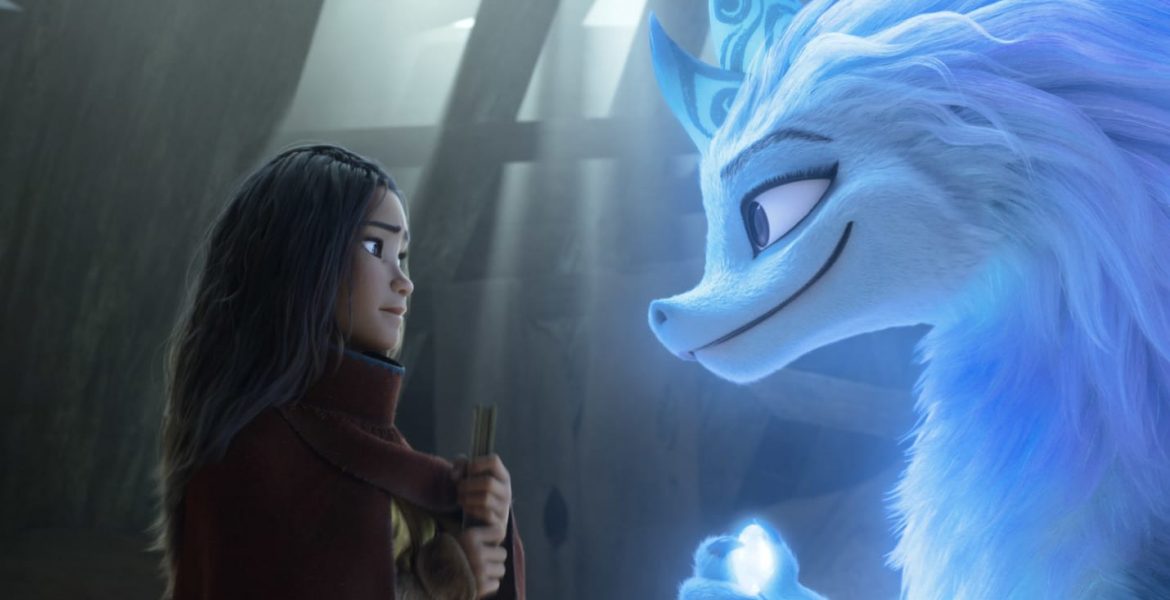A few days ago, Disney+ subscribers were greeted by a banner promoting a new animated film to hit the popular streaming service. This latest entry into the streaming site’s catalog may very well have blended seamlessly among other monthly releases had it not been for the unusual $30 price tag to access it.
“Raya and the Last Dragon” is the latest feature film from Walt Disney Animation Studios and the first original film (that is, not a sequel like “Frozen II”) to come from the studio since “Moana” in 2016.
Despite ties to the Disney name and being the first film from the studio to spotlight Southeast Asian culture, “Raya and the Last Dragon” saw an underwhelming domestic box office performance, bringing in just $8.6 million its opening weekend (roughly over half of the $14.1 million earned by Warner Bros.’s “Tom and Jerry,” Tom Brueggemann from IndieWire reported.)
From its limited theater release and a hefty $30 fee on top of an annual Disney+ subscription, “Raya and the Last Dragon” is facing similar obstacles to 2020’s live-action “Mulan”, ironically another film starring an Asian heroine.
Where Disney’s live-action “Mulan” didn’t fare very well with critics and audiences, “Raya and the Last Dragon” has received critical acclaim despite an initial lackluster performance.
So, is this latest Disney feature an expensive hidden gem or another mediocre animated original?
**Spoilers Ahead**
Though the story is completely fictional, “Raya and the Last Dragon” takes heavy inspiration from Southeast Asian cultures through its setting and narrative. For example, Raya wears a hat reminiscent of a salakot, a traditional headgear commonly found in the Philippines. And, according to Yvette Tan of BBC News, uses a fighting technique inspired by Silat, an indigenous form of martial arts popular in Indonesia, Malaysia, Singapore and more.
Early stills showcasing the diverse tribes within the film earned praise online long before “Raya” hit streaming services. This incredibly diverse cast of characters and their homelands, inspired by early Southeast Asian communities, are not just shown in this one part of the film, but occupy much of the narrative.
The story of “Raya and the Last Dragon” transpires within an incredibly inspired and admittedly complicated fantasy world, the exposition of which I found pretty heavy-handed – even for a Disney movie.
To summarize, “Raya and the Last Dragon” takes place in the fictional land of Kumandra, whose once vibrant and harmonious landscape has been ravaged by evil beasts known as the Druun. The story follows lone warrior Raya (voiced by “The Last Jedi”’s Kelly Marie Tran) as she searches for the legendary last dragon, Sisu (voiced by comic Awkwafina), who holds the key to destroying the beasts and restoring Kumandra back to its former glory.
This is not to mention the five distinct tribes that make up the now broken Kumandra, or the dragon orb Raya is entrusted to protect that plays an integral role in restoring Kumandra and its people. All of this essential information is presented in the form of extensive flashbacks or, similar to the opening of Disney’s “Moana”, long narrations overlaid over storybook segments.
With so much information to take in, I found myself having to rewatch segments to catch information I might’ve missed. I can only imagine how a young target audience member might feel upon first viewing.
With a fantasy world so complex, it would have benefited Disney to show more and tell less, as the frequent lore dump was honestly nauseating at times.
In the recent past, Disney has been able to explore equally complicated worlds with far more subtlety and grace. For example, “Zootopia” was another film whose complex and unfamiliar setting needed much explaining, but was able to accomplish this through organic storytelling that allowed the viewer to gather an understanding of both the world and the main character’s motivations simultaneously.
While the setting of “Raya and the Last Dragon” is fascinating, oftentimes Raya takes a backseat to her own story while she or other characters explain the details of Kumandra and its history, which eventually began to take away from the immersion entirely.
Once I was able to get over the narrative humps, however, I found the film to be relatively pleasant. It’s clear a lot of research and effort was poured into this film and despite its flaws, makes for one of the most unique films to enter the Disney animated canon.
The film benefits from great performances from Kelly Marie Tran and – despite the controversy surrounding her “blaccent” – Awkwafina, as well as emotionally moving animation that blew me away at several points in the film.
However, Raya continues to prove that despite celebrity voices, eye-catching animation and being produced under a household name, without the help of nostalgia, a reliance on streaming is far from an infallible strategy- even for a major animation studio like Disney.
Unless Disney has plans for a wide theatrical re-release later this year, “Raya and the Last Dragon” will likely fade into obscurity as Walt Disney Animation Studios and the rest of Hollywood continues to grapple with the setbacks of the COVID-19 pandemic.






